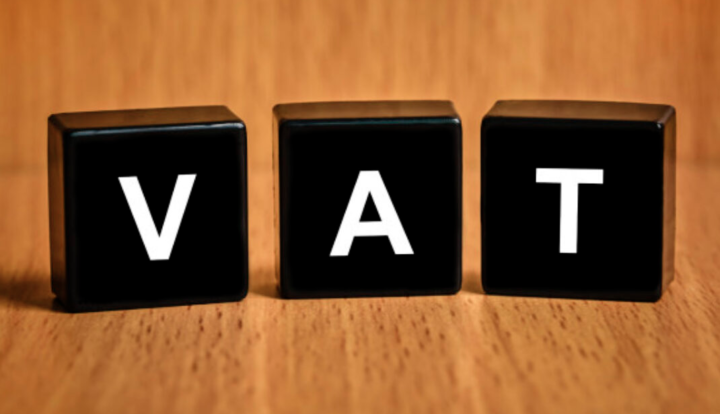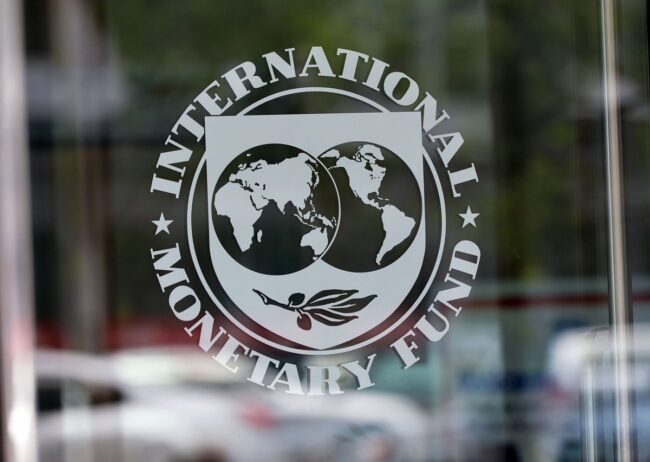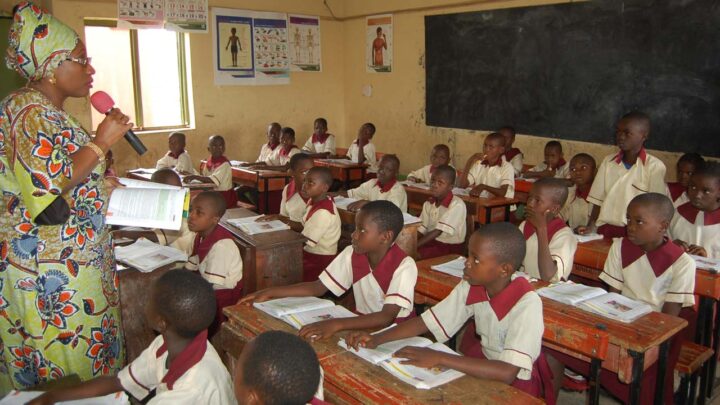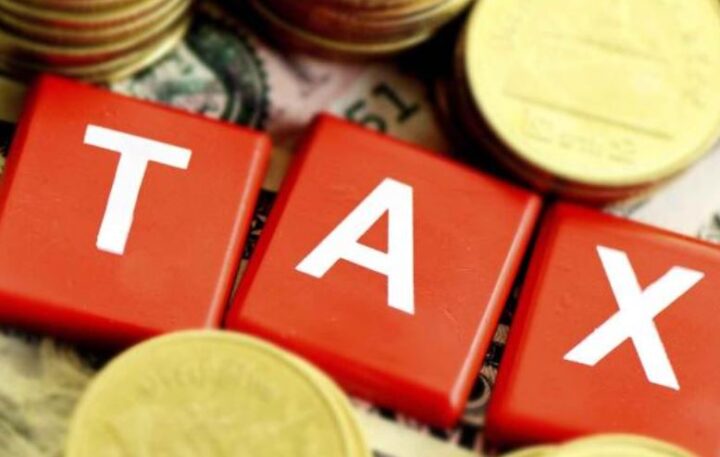During the regime of General (rtd) Ibrahim Badamasi Babangida, when Nigeria was offered the poisoned chalice of structural adjustment program, SAP, by the Bretton Woods institutions, that was expected to culminate in total deregulation/liberalisation of the Nigerian economy, the Neo-classical/Neo-liberal political economists since then, have never failed to tell whoever cares to listen, that total deregulation of the economy, is the only way to go, if the must fulfil its socio-economic potentials.
Ever since then, agents of the West, including institutions like the IMF, World Bank, London and Paris Clubs of creditors, among others have been trying; haranguing Nigeria, and other Third-world nations into adopting the economic model to be midwifed by the Bretton Woods institutions. They use subtle threat, and diplomatic manipulation to cajole leaders of developing countries into doing their bidding.
Still fresh in minds was a visit, by a French politician and lawyer who is also the current President of the European Central Bank, Christine Lagarde. Since she came to Nigeria, on a visit to President Muhammadu Buhari, early January, 2016, to preach the gospel of deregulation/liberalisation of the Nigerian economy, as a pre-condition for Nigeria to be able to access the ever bubbling credit market in the West, of course, President Buhari whose administration has been running a model of economy, that a popular columnist with a Nigerian online media platform, The Premium Times, and a social media influencer, Bamidele Ademola-Olateju (Mrs) referred to as “Kao Kudi Economy”; borrowing money left right and centre, as if loan-taking would run out of fashion tomorrow, had been giving it (Lagarde’s proposition), a very serious thought. Since the National Economic Council, NEC, led by the Vice President, Yemi Osinbajo, a Professor of Law, have not demonstrated any sort of creativity on how to tackle the mirage of economic problem bedevilling the country, the next thing is for the successive Ministers for Finance to resort to borrowing, under the guise of borrowing to bridge infrastructural gaps occasioned by years cumulative neglect by Buhari’s predecessors. Meanwhile, it must be highlighted that; no Nation can, or has, ever borrow itself into prosperity.
And funny enough, propounders of this Neoliberal economic theory that the West seeks to ram down the throats of the 3rd world countries, run their own economies, in a way that contradicts the major provision of the theory, like the payment of subsidy on any good or service that the government wishes to keep within the reach of the common man. But they encourage the State to divest from commercial venture, claiming that, Government “has no business in business”. They propose that the government should allow the interaction of market forces of demand and supply to determine prices of goods and services. But if you look at these countries’ economies; America for instance; they give subsidies in critical areas of lives of the American people; otherwise, how does the American government explain the fact that, it also spends $20 billion every year to subsidize agriculture in what they refer to as “farm income stabilisation”?
Advertisement
The UK recently provided a bailout package for stressed banks (commercial or any other ones for that matter), the same goes for the government efforts in post-Covid-19 to reflate the recessive economy – they provided, and are still providing, stimulus packages for businesses and individuals whose means of livelihood were seriously hit by the pandemic. Even before Covid-19 outbreak, there was unemployment benefit, paid to the unemployed. All these measures are in contravention of the policy thrust of the Neo-liberal theory, in letter and spirit. Yet they come to our leaders in Africa, especially Nigeria, who already has a heavy dose of heartlessness in them; preaching more inhumane economic policy that would further worsen the situations the already pauperized citizens.
Neoliberalism is an economic theory that has its root in the West’s socioeconomic milieu, yet they are professing its efficacy, if and when applied to 3rd World situations, especially Africa. I have never seen where the result of the diagnosis for Patient-A is used to treat Patient-B. In case they need us to remind them; Greece, a European country recently had her economy in the abyss. Then one shudder to ask; where was the neo-classical theory then? But of course, you and I know that, such an inconsistency is emblematic and characteristic of our relationship with the West; pre, during and post-colonial era. Come to think of it; if a theory fails so spectacularly in preventing or even curing the economic ailment of Greece, how do they hope to convince a right-thinking, responsible and responsive people-oriented leaders in other climes to accept and administer it, to any degree of efficacy? Of course, it takes a puppet government to swallow such gibberish, hook, line and sinker. Remember, Walter Rodney in his book;
“How Europe Underdeveloped Africa”, said that; “Any diagnosis of underdevelopment in Africa will reveal, not just low per capita income, and protein deficiency, but also, gentlemen who dance in Abidjan, Accra and Kinshasa, when music is played in Paris, London and New York.”(Rodney 1972, P. 33
The aggressive push by the trio of Ronald Reagan, Helmut Kolh, and Margaret Thatcher, of the US, German and Great Britain, respectively, after the end of cold War, purporting a New (multipolar) World order, in the late 80s and early 90s, has at its core, the need to spread the gospel of neoliberalism as wide as possible in the world, with agents sent on such imperialistic missions on a regular basis. So, the visit of Lagarde to Nigeria in January 2016, is not unconnected with the agenda because, the institutions she had represented – the International Monetary Fund, IMF, European Central Banks, is a veritable platform and an instrument of coercion and arm-twisting that helps the West see to it that, the theory is embraced. And for the Buhari administration, what matters most is the right atmosphere to keep borrowing.
Advertisement
One of the major concern of this writer is that, some elements of the proposition to remove subsidy on fuel by next year, have been found to have failed woefully, the test of simple economic and arithmetic logic. Now, consider this:
Part of the proposition is that, the sum of ₦5,000 (five thousand Naira) monthly would be paid to 40,000,000 (forty million) vulnerable Nigerians. Mathematics is not one of my areas of core competences, hence I am not numerate; but in arithmetic, especially when it carries the symbols of “Naira and Kobo”, “I no dey gree easily”. So let us do this one.
1. ₦5,000 for 40,000,000 people, equals to ₦200 billion. And ₦200 billion for 12 months, equals ₦2.4 trillion (two trillion, four hundred billion Naira) per annum.
2. This arouse my curiosity; Monthly Subsidy being paid by the Federal Government at the moment, is ₦150 billion per month. This means, subsidy per annum will be equal to ₦1.8 trillion (one trillion, eight hundred billion Naira).
Advertisement
Now let us ask this germane question; does the Federal find paying ₦1.8 trillion more difficult to meet up with, than they do, paying ₦2.4 trillion?
Everybody who is a keen observer of Nigeria’s macroeconomy knows how much of an impact (talking about inflation) an upward review of pump price would have on prices of goods and services, which compounds the already-asphyxiating galloping inflation in the land.
One issue that engenders distrust in the government’s intention is that; before President Buhari assumed office in 2015, during electioneering, he said, the whole subsidy regime was a scam, rhetorically asking; “Who is subsidising who”? Yet he came into office, and continued paying the thing, under different guise. The immediate past Minister of State for Petroleum Resources, Dr. Ibe Kachikwu brought it up under a different nomenclature – “Under-recovery”, “Price Modulation Principle” and the stubborn term itself – “Subsidy”. The government agency that fixes fuel price, Petroleum Pricing Regulatory Regulatory Agency (PPPRA), at point, said what still exists is Price Modulation Policy, which it uses to consider and reviews pump price of petrol quarterly.
The truth of the matter is that, this government has removed subsidy countless number of times, with nobody having an inkling, as to, who returns it every time it is removed. And that constitutes a very serious integrity challenge in the eyes of the masses, who does not understand any language apart from what they feel in their stomachs, as impacts from such policy. Economic indices like transport fares, House rents, health care service, food prices, cost of essential goods and services will rise astronomically. And considering the fact that, 2023 is upon us, there is no gainsaying the fact that, it will influence people’s electoral decisions. That is what makes, “Subsidy Removal” a sort of “Political Harakiri”, that may transmogrify APC from being the ruling party to an opposition party that it once was.
Advertisement
That does not mean that, the subsidy regime, whether you call it “under-recovery”, modulation or whatever, is sustainable, but the party would pay heavily for such a policy-option, as Nigerians have never had it this bad.
Removal of subsidy is one politics that no politician in Nigeria is ever willing to play, especially if he or she is still willing to seek renewal of mandate. In this case, the individual on whose desk the buck stops, President Muhammadu Buhari has no mandate to renew again, via the ballot box, except if he is rooting for a candidate, but the overall electoral fortunes of party, the All Progressives Congress, APC, would be on the line.
Advertisement
I ordinarily wouldn’t have an issue with it, but I was opposed to it in January 2012, and it, for a reason. I no longer oppose it now, because it is an inevitable decision we have to take, whether now or later, even though, the reason for my opposition to it then, is still very much around. But the issue of trust. The reason is this; nobody can guarantee or trust the government on how and where the savings accruing from the removal would be invested. Nobody trusted the People’s Democratic Party, PDP then, to make a judicious use of savings from such a removal, as many, including this writer believed, and still believes, it would be redirected to subsidising the opulent lifestyles of those we put in office to serve us. The salary and allowances of an average Nigerian politician is more than double, those of his colleagues anywhere in the world. It is a fact.
Would it be deployed to subsidising sectors where it have the most direct impact on the standard of living of an average Nigerian? Or would it be spent on financing the unsustainable, undeserved and unwanted privileges of the political office holders and their acolytes? The Dr. Goodluck Jonathan-led administration came up with Sure-P, but hardly could one locate any beneficiary of the scheme, who was not a card-carrying member of the PDP.
Advertisement
I think subsidy removal on fuel is not a bad idea, but the issue is the cesspool of corruption it has created in the oil sector, with a stratospheric rise in the number of “portfolio billionaires”, without an office or filling station. It is not as if I am saying subsidy of whatever product or service by the government is not good. It is good, but it is important to ensure that it is applied in a strategic sectors where its benefits can get to the target beneficiaries, unlike what we witness in the oil sector, where smugglers would buy at a subsidised rate, and then take across the border to sell to our neighbours. What that means is that, the Nigerian government is subsidising for people in neighbouring countries.
I’d rather prefer, subsidy on fuel be removed on fuel, and proceeds of such removal be ploughed into agriculture, to ensure food security; health, to ensure a “healthy” citizenry, and Education, to ensure the nation had enlightened minds that can drive development on all fronts.
Advertisement
We must not allow money saved from the removal be spent on financing the salaries and allowances of politicians at the expense of infrastructural development, that would benefit the masses.
I know how unpopular this position might sounds, but that is the way I think we can make progress as a nation, if we really want to banish the absurdity of “earning big and having less” to spend on areas where it would improve the overall well-being of Nigerians, because of payment of subsidy.
For those who remember how vehement I was in my opposition to Goodluck Jonathan’s government on the issue of subsidy; I make bold to say that, that time would have been the most appropriate time to implement the removal, but there was the problem of trust between the government and the people. It is not as if the issue of trust is still not endemic now as a matter of fact the trust level has gone way lower, down the scale; but my change of position is informed by the realisation that, we cannot continue postponing the evil days as our electoral system will continue to churn out rogue politicians who are not ready to evolve a system that would make, wasting or stealing of public funds seriously punishable offence.
Abubakar writes from Ilorin. You can reach him via 08051388285 or [email protected]
Views expressed by contributors are strictly personal and not of TheCable.
Add a comment







